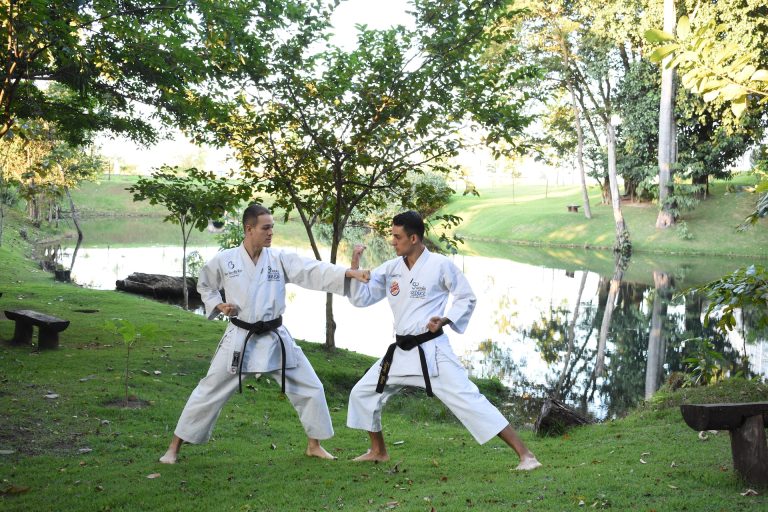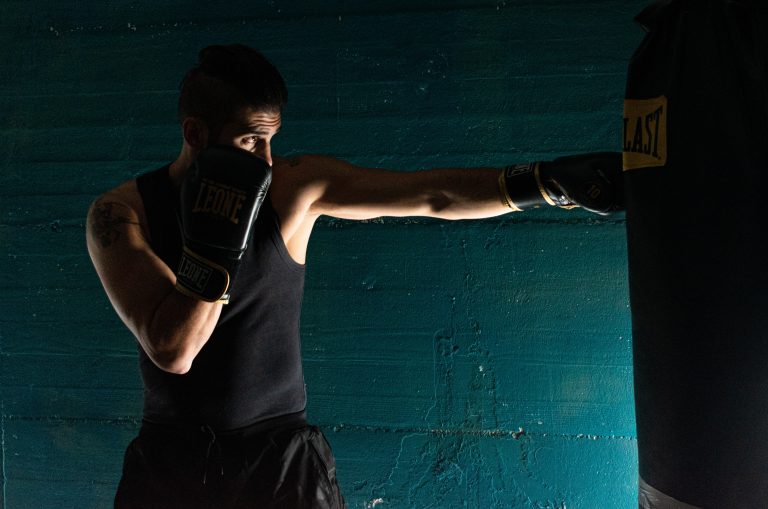Is Sport Karate Effective?
Karate, a traditional Japanese martial art, has been around for centuries, and it has become one of the most widespread practices in the world. Due to its popularity, this fighting discipline has slowly evolved into various branches, including sports karate, also known as competitive karate. However, some people question its effectiveness as a self-defense tool or a martial art, so in this blog post, we will determine whether sport karate is efficient or not.
What is Sport Karate?
Sport karate is a form of karate where practitioners compete against each other in a controlled environment. It is based on the traditional style of karate but focuses more on speed, accuracy, and technique. Sport karate is more of a competitive sport than a martial art. In sport karate, the rules are specific and the techniques are limited to prevent injury to the participants.
What are the Techniques Used in Sport Karate?
The techniques used in sport karate are derived from traditional karate, but they are adapted to fit the sport’s specific rules. The most common techniques used in sport karate are as follows:
– Punches: Straight and reverse punches are commonly used in sport karate. However, spinning backfist punches and hook punches are sometimes used as well.
– Kicks: Front kicks, roundhouse kicks, and side kicks are some of the most commonly used kicks in sport karate. Some kickboxing kicks, such as hook and crescent kicks, are also occasionally used.
– Blocks: Blocks are used to defend against an opponent’s attacks. In sport karate, downward, inward, outward and rising blocks are commonly used.
– Throws: Throws are not allowed in sport karate, but some styles of karate used in self-defense incorporate throws.
Is Sport Karate Effective for Self-Defense?
The question of whether sport karate is effective for self-defense pits the traditionalists against the modern practitioners. Critics argue that sport karate doesn’t teach self-defense techniques adequately. They believe that the sport limits techniques to a few restricted kicks, punches, and blocks.
However, supporters of sport karate argue that the art still includes many techniques that are effective in self-defense. Many of the techniques employed in sport karate have been adapted from traditional karate, which centers around strikes recognized for their power, flexibility, and versatility.
Though sport karate does not typically teach throws or grappling techniques, it can become a helpful tool when incorporated with another martial art form. For example, mixing sport karate with judo or jujutsu, which has a focus on wrestling and grappling, can increase your chances of defending yourself against an opponent.
Is Sport Karate Effective in Competition?
Sport karate is a highly competitive sport with various national and international tournaments. Participating in competitions can help students develop their skills in various techniques, such as timing, control, speed, and precision. However, sport karate is different from traditional karate, as it restricts techniques that may result in injuries.
In a competitive karate match, the winner is usually determined based on the number of points they score through kicks, punches, and techniques. While speed, agility, and power are essential, strategy and timing are also essential to win matches.
While sport karate may not be as practical in a fighting scenario as traditional karate or other grappling martial arts like judo or Brazilian Jiu-Jitsu, it is still an efficient sport that emphasizes speed, timing, accuracy and other attributes that are helpful in close-range striking.
Is Sport Karate Effective? FAQs
Karate is a highly popular form of martial art that has gained immense popularity all over the world. Over the years, the perception of karate has evolved with more people associating karate with sport than defense. Sport karate is a highly evolved form of karate where contestants compete against each other in regulated matches. However, despite its popularity, many people still wonder if sport karate is effective in real-life self-defense situations.
In this post, we will provide answers to the most frequently asked questions about sport karate.
1. What is Sport Karate?
Sport karate is a popular competitive form of martial art where participants showcase their skills in a regulated, controlled environment. The competitions are judged by a panel, and points are awarded based on the strikes, moves, and techniques used. Sport karate emphasizes on speed, agility, and technique, rather than power.
2. How Effective is Sport Karate in Real Life?
In terms of self-defense, many people question the effectiveness of sport karate techniques. In reality, sport karate can be effective in real-life situations, but it is important to note that it is primarily designed for competitions. Sport karate techniques will work against different opponents and sparring partners with a mutual agreement to abide by the rules of the game.
However, self-defense situations are usually unpredictable and often involve attackers that are not trained in martial arts. Thus, sport karate techniques may not be effective for self-defense against an untrained opponent.
3. Does Sport Karate Teach Self-Defense Techniques?
Sport karate is designed to teach martial art techniques, but it is not specifically designed for self-defense scenarios. However, basic sport karate techniques such as kicks, punches, and blocks can be modified to meet one’s self-defense needs. It is important to note that self-defense techniques involve more than just techniques, and should also incorporate strategies for situational awareness, prevention, and escape.
4. Do Karate Practitioners Only Learn Sport Karate?
Karate practitioners can decide to learn sport karate, traditional karate, or a combination of both. Traditional karate is focused on traditional combat techniques that are primarily aimed at self-defense. It emphasizes on strength, technique, and control, rather than speed and agility.
5. Is Sport Karate Only for Competitions?
Sport karate techniques are primarily designed for competitions. However, the skills and techniques learned through sport karate can be applied to other forms of martial arts or self-defense scenarios.
6. What are the Benefits of Sport Karate?
Sport karate offers a wide range of physical and mental benefits. Physical benefits include improvement of cardiovascular health, increased flexibility, improved coordination, and strength development. Furthermore, sport karate offers mental benefits such as discipline, self-confidence, and the ability to stay calm under pressure. Through sport karate, individuals also learn important life skills such as dedication, perseverance, and humility.
How to Determine if Sport Karate is Effective
If you’re interested in martial arts, you’ve probably heard about sport karate. It’s a subtype of karate where the emphasis is on athletic competition, rather than practical self-defense. Some people swear by it, while others dismiss it as ineffective. If you’re wondering whether sport karate is right for you, or if you should focus on other styles, this guide will help you determine whether it’s effective. Here’s what you need to know:
Step 1: Understand the Purpose of Sport Karate
Before deciding whether sport karate is effective, you need to understand its purpose. Sport karate is primarily focused on athletic competition. It involves sparring, forms, and other events that are judged based on technical skill, speed, and power. The goal of sport karate is to outscore your opponent, rather than disable or defeat them in a real-life self-defense situation.
Step 2: Consider Your Goals
The next step in determining whether sport karate is effective is to consider your martial arts goals. If you’re interested in improving your fitness, athleticism, and technical skill, sport karate may be a good fit for you. It’s a challenging sport that can help you develop speed, power, and endurance. However, if your primary goal is self-defense, sport karate may not be the best choice. Its focus on competition means that it may not teach practical self-defense techniques that can be used in real-life situations.
Step 3: Evaluate Your Teacher and Training
If you decide that sport karate aligns with your goals, it’s important to evaluate your teacher and training. Not all sport karate schools are created equal, and some may focus more on competition than practical self-defense skills. Look for a teacher who has experience in both sport karate and practical self-defense. They should be able to teach you techniques that can be used in both scenarios. Additionally, make sure your school offers plenty of sparring practice, as this is a key component of sport karate.
Step 4: Learn About the Limitations of Sport Karate
While sport karate can be effective in certain situations, it has its limitations. One of the main drawbacks is that it’s focused on competition, rather than real-life scenarios. This means that the techniques taught may not be effective in an actual self-defense situation, where there are no rules or referees. Additionally, sport karate may not be effective against multiple attackers or armed opponents.
Step 5: Consider Supplementing with Other Styles
If you’re interested in sport karate but want to be prepared for real-life situations, consider supplementing with other martial arts styles. Styles like Jiu-Jitsu, Krav Maga, and Muay Thai can provide practical self-defense techniques that complement sport karate. Additionally, taking a self-defense class can help you understand how to apply your sport karate skills in real-life situations.
Conclusion
In conclusion, sport karate can be an effective martial arts style for those interested in competition and athletic training. However, it has limitations when it comes to practical self-defense techniques. If you’re considering sport karate, make sure to evaluate your goals, teacher, and training to ensure that it aligns with what you want to achieve. Additionally, consider supplementing with other martial arts styles to be prepared for real-life situations. By following these steps, you can determine whether sport karate is effective for you.
Inhaltsverzeichnis






